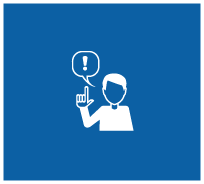In Texas, exempt property covers what you need to live on.
Here’s a brief list of the major categories of exempt property:
- Your homestead is exempt up to 10 acres of urban property (single or family) and up to 100 acres of rural property (single) and 200 acres (family).
- Note! If you are behind on your mortgage, property taxes, or home equity payments, your homestead can be foreclosed. Don’t get a home equity loan to pay off credit card debts or medical bills — if you default on the equity loan, you could lose your home.
- For more information on the homestead exemption, see Chapter 41 of the Texas Property Code.
- Personal property adding up to $50,000 for a single person or $100,000 for a family.
- Vehicles — one for each licensed driver in the house.
- Tools of your trade, sporting equipment, bicycles, two firearms, two horses, 12 head of cattle and other items, farming or ranching vehicles, clothes, and pets.
- In general, IRAs, 401(k)s, traditional pension plans, profit-sharing plans, annuities.
- Life insurance proceeds.
- College savings plans, such as 529 plans, and prepaid tuition plans.
A list of exempt personal property can be found in the Texas Property Code Section 42.
Some exempt income includes:
- Social Security or Social Security Disability Income
- Benefits for Veterans & Public Assistance
- Retirement and Vocational Rehab
- Worker’s Compensation
- Unemployment
- Court-Ordered Child Support and Spousal Support
Wages that have not yet been paid (aka current wages) cannot be taken to pay a judgment in Texas except to pay court-ordered child support, spousal maintenance, federally guaranteed student loans in default, or federal income taxes owed. However, once wages are deposited in a bank account, they are subject to garnishment, or seizure, by a creditor.
Everything that is not considered exempt is up for grabs by creditors, like jewelry or a boat, for example.

Do not mix exempt income with other money or earnings — if you do, it may not be exempt any more. Keep it in a separate bank account to keep it exempt.
